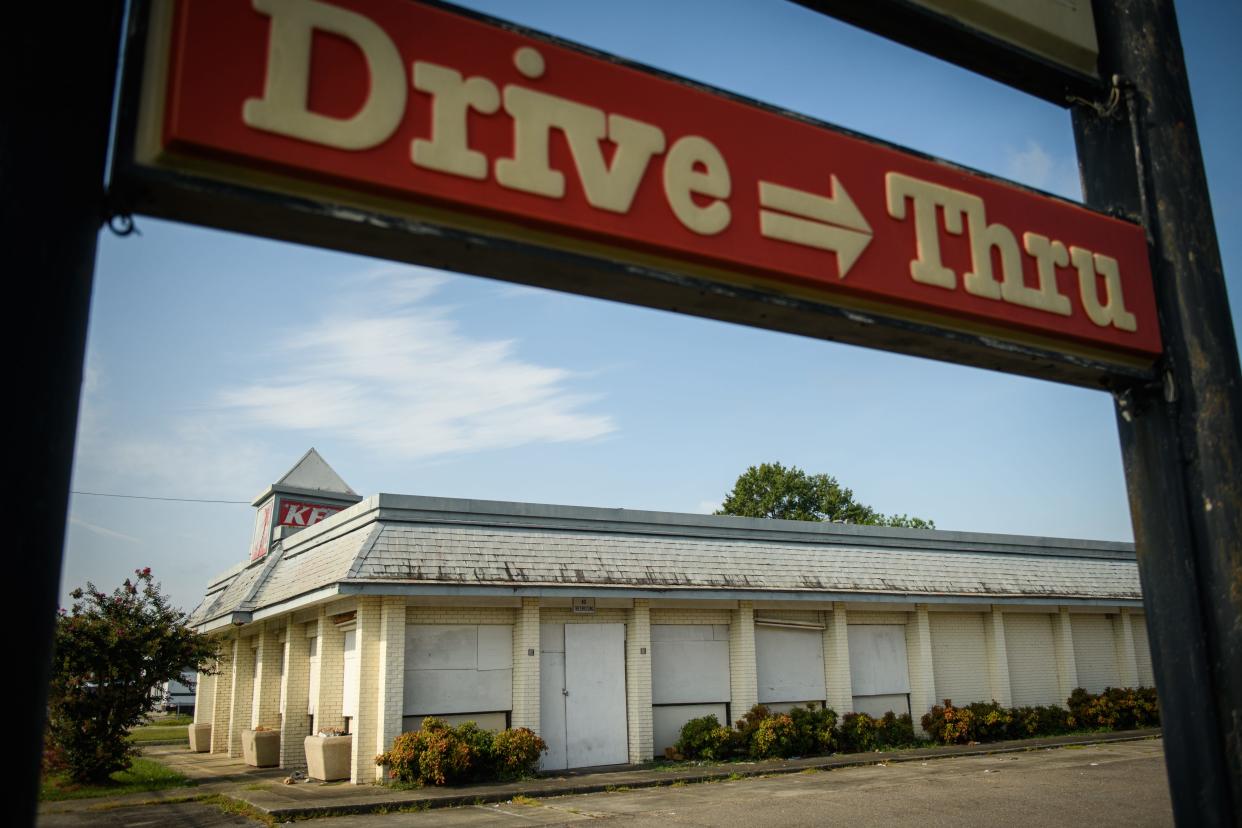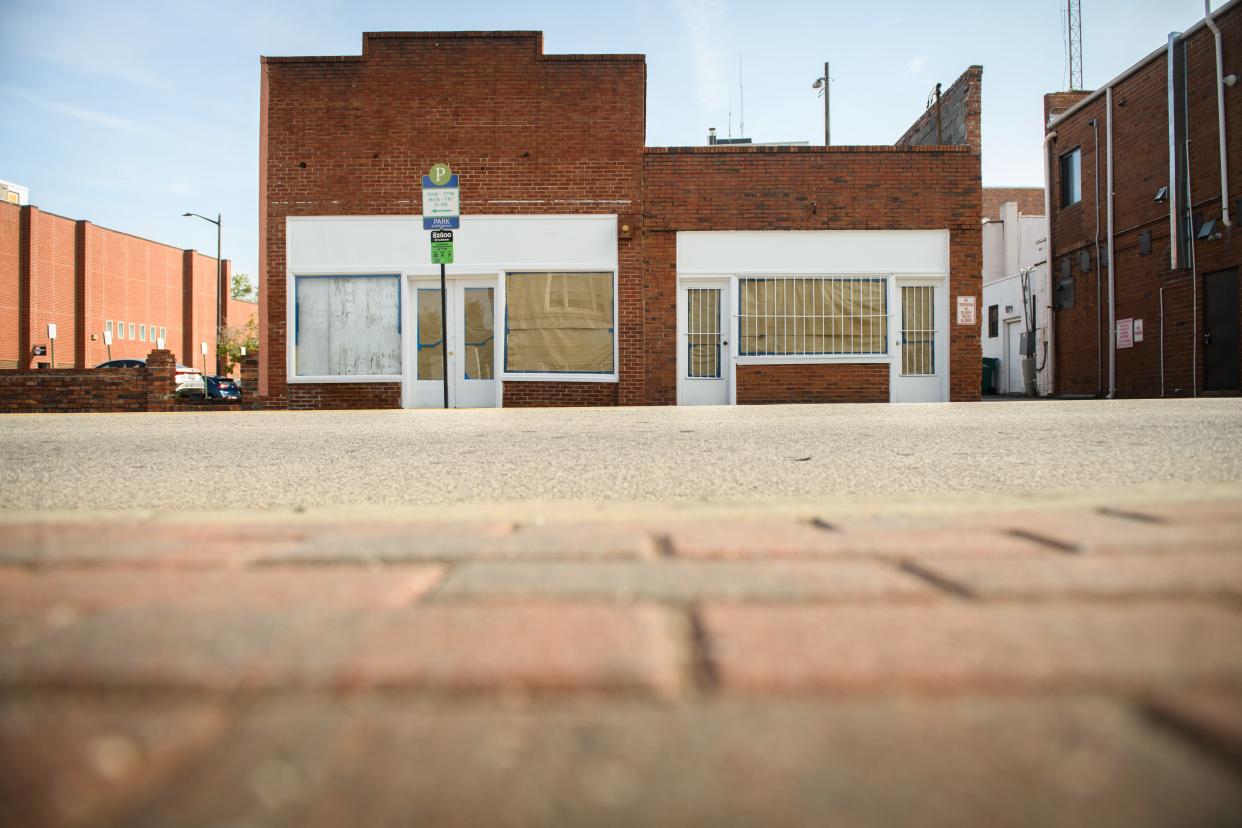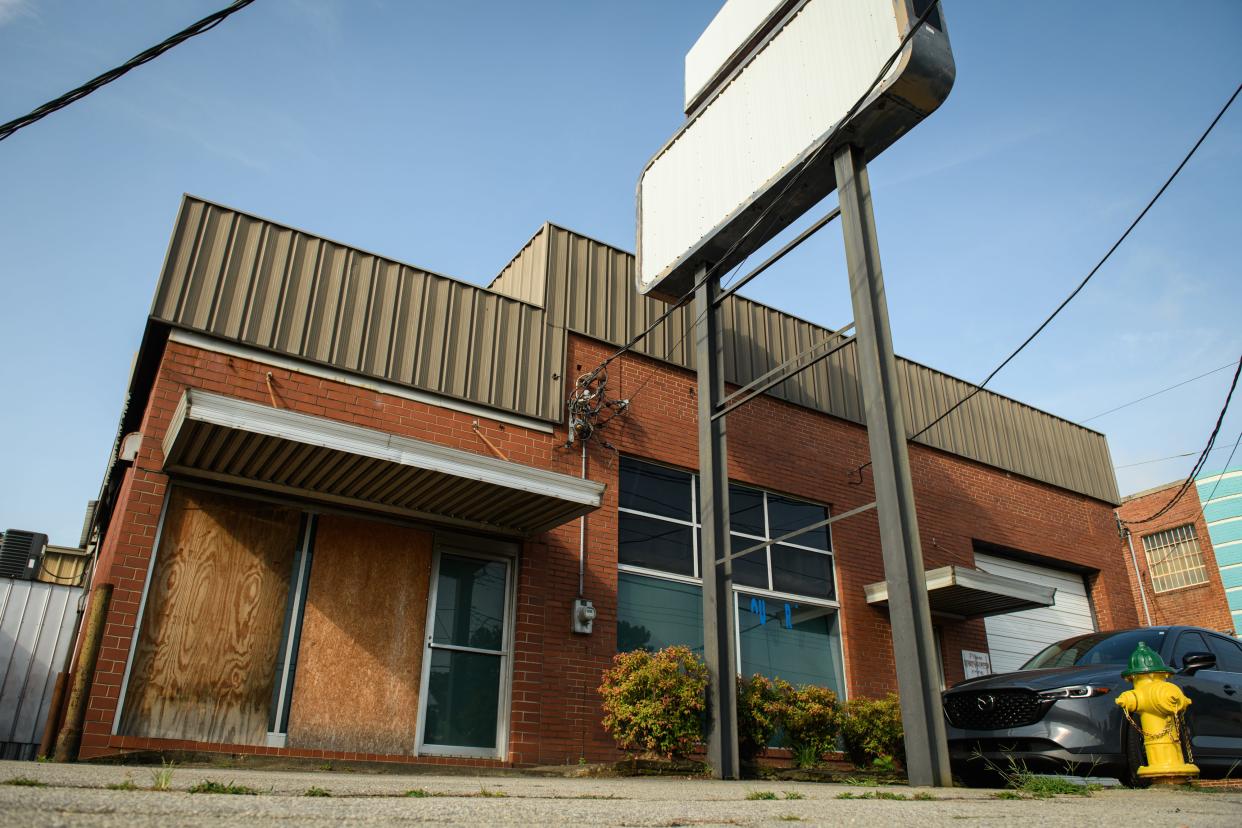Should Fayetteville crack down on vacant, boarded-up buildings?
Some members of the Fayetteville City Council are unhappy with the number of vacant, boarded-up commercial buildings around town and are considering an ordinance to try to force the owners to do something with them.
“In my district, I have a lot of boarded up properties throughout, from Reilly Road to Murchison Road,” City Councilman D.J. Haire said at the Aug. 7 City Council meeting. The longer these buildings are boarded up, the longer they go without maintenance and upkeep, he said, and the more that they detract from the community’s quality of life.
“People are moving in it. They become dumping grounds. And on, and on, and on, and on, and on,” Haire said.
Following a request from the City Council earlier this year, the city staff at the Aug. 7 council meeting presented a proposed ordinance and a list of 32 boarded-up buildings. The City Council voted 7-3 to continue to pursue creation of the new regulation.

The presentation included photos of several properties with plywood boards on their doors and windows: A long-closed KFC restaurant on Eastern Boulevard, a former bank building and former office of a used car lot.
The proposed boarded-up building ordinance would be an expansion to a regulation that has been on the books since 2012 for residential properties. The new regulation would apply to all buildings, not just residential buildings.
Some of the restrictions:
Anyone who boards up the doors and windows of an unoccupied building must register it with the city within 48 hours.
Owners of buildings that were boarded up prior to the ordinance’s effective date will have 30 days to register their properties.
After three years of being boarded up, the owner must remove the boards from the doors and windows. The boards can be replaced with sheets of transparent, shatterproof acrylic plastic (such as Plexiglass) that is at least a half-inch thick. “Doors and windows shall be free of any defects prior to covering,” the proposed ordinance says.
Property owners who fail to comply could be fined.
Since 2015, the city has registered 535 residential properties with the residential boarded-up building ordinance, the report to the City Council says.

Council members Deno Hondros, Kathy Keefe Jenson and Courtney Banks-McLauglin voted against the idea of making all properties follow the same rules as residential properties.
“I somewhat support it, but my — my big issue is the time,” Banks-McLauglin said. “And I think three years is a lot of time.”
She has seen houses and businesses boarded up in big cities, she said, and if owners can go for three years, “eventually our city will look like a slum city.” She suggested a two-year time limit.
Hondros said most other cities don’t have this kind of regulation, and neither should Fayetteville.
“For me, it’s a property rights issue,” Hondros said. “If a building is not hazardous, how do you tell a property owner what they can and cannot do?”

Jensen said a building that takes down its boards could be quickly vandalized if it’s still empty. She suggested the city should do more to help owners of run-down properties tear them down.
“Nobody wants to see all this, I get it,” Jensen said. “But we just have to be smart about it. And I’m having a hard time supporting that,” she said of the proposal.
Senior North Carolina reporter Paul Woolverton can be reached at 910-261-4710 and pwoolverton@fayobserver.com.
This article originally appeared on The Fayetteville Observer: Should boarded up and vacant buildings in Fayetteville be regulated?


